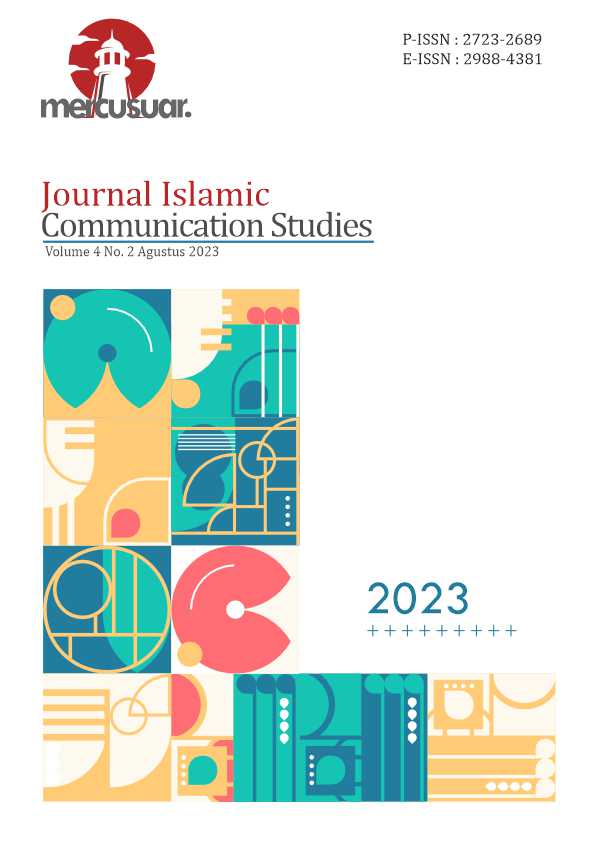Dawah Values in the Sibaliparri Culture of Making Lopi Sandeq Among the Pangali Ali Community in Majene Regency
Abstract
This study aims to describe the values of preaching embedded in the cultural practice of sibaliparri in making lopi sandeq. The research adopts a participatory ethnographic approach with a qualitative method. Data sources include community leaders, religious figures, local residents, fishermen, artisans, and local government officials. Data collection methods consist of interviews, observations, and documentation. Data analysis techniques include data reduction, data presentation, and conclusion drawing, with data authenticity verified through triangulation.
The findings reveal three preaching values inherent in the cultural practice of sibaliparri in making lopi sandeq: brotherhood, compassion, and sincerity. Brotherhood in the production of lopi sandeq serves as a manifestation of preaching values by emphasizing unity in cooperation, overcoming challenges together, and fostering love, care, and respect for differences.
The implications of this study are twofold. First, it aids in promoting and preserving the values of sibaliparri in the community, particularly in the production of lopi sandeq as a form of preaching message, thereby increasing awareness among the community about the importance of sibaliparri in daily life. Second, it contributes to the development of preaching messages within culture and tradition, enhancing the effectiveness of preaching in reaching and influencing the community. The findings also serve as a foundation for further research into the relationship between sibaliparri values and preaching within the cultural and traditional context.


